404 Learning Ecosystem Success: 5 Plain and Simple Hacks
4:00 PM - 5:00 PM Tuesday, March 26
Management and Strategy
Salon 1
Learning is an intrinsically human activity that happens in many places and in many ways. It doesn’t matter how great or feature-rich any one learning system is; learning will never happen in just one place. The modern learning ecosystem not only recognizes this reality but also embraces it to support learners wherever and however they learn best.
Getting started on the journey to a learning ecosystem can seem daunting. So technical, so expensive, so involved and exhausting! But it doesn’t have to be. In this session, you’ll discover five smart hacks for making your journey toward a more mature learning ecosystem easier. These are simple, doable hacks. You’ll start with a definition of a learning ecosystem—both for beginners and advanced audiences—and then get into real, tactical, simple activities you can consider now.
In this session, you will learn:
- What a learning ecosystem is, and why companies are implementing them
- How to choose interoperable tools to begin with
- Techniques for setting up a learning record store (LRS)
- Ways to make measurement part of your world
- How to have single sign-on (SSO) in place, which gives your learners a seamless experience and standardizes reporting
- Strategies for a “launch-support-improve” campaign for your learning ecosystem to set people up for continuous improvement
Audience:
Designers, developers, managers, and senior leaders (directors, VP, CLO, executive, etc.)

Rose Benedicks
CEO
Dashe & Thomson
Rose Benedicks is a renowned learning design expert and CEO of Dashe & Thomson. She has won awards for her learning experiences and is recognized for her approach to workplace challenges. She excels in aligning learning with business needs and proving the ROI of well-designed learning experiences. She holds a masters in instructional systems technology from Indiana University, is a leading presenter in the industry, and teaches instructional technology at the University of Tennessee, Knoxville.





